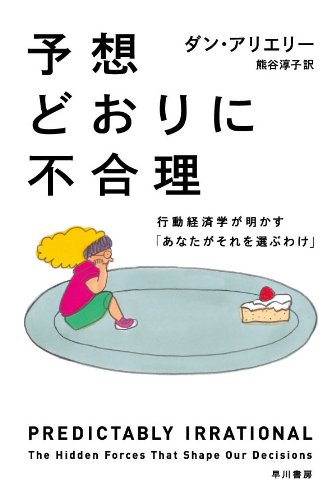- Published on
Why does it make you lose motivation when your boss is grateful for money? ~Clash between "social norms" and "market norms"~
Source: Dan Ariely, "Absolutely as Imaginable" (Hayakawa Publishing)
Roughly speaking
- Don't say "I'll pay 5,000 yen" for my stepmother's exquisite homemade dishes. This is because it is a forbidden act that brings cold "market norms" into the world of warm "social norms."
- We live in two worlds. Once you bring up the "money" topic, goodwill and compassion disappear, and everything becomes "trading" with profit and loss.
- As Dan Ariely's experiment shows, lawyers work "free" for the poor, but not for "cheap pay." Money sometimes deprives you of motivation.
Introduction: The moment when appreciation is transformed into insult
You were treated to a wonderful, heartfelt home cooking at your partner's parents' house. You must be impressed and quietly go to your mother-in-law after a meal and offer to "It was really delicious. In addition, you will pay 5,000 yen in ingredients and labor." What will happen? Perhaps the atmosphere will freeze and you will never be called to the house again.
I was supposed to want to express my gratitude, but why did it become the worst insult? The answer lies in two different rules that govern our world: "social norms" and "market norms," which Dan Ariely vividly explained in "predictably irrational."
If you don't understand these rules, what you do with good can fundamentally destroy relationships and team motivation.
Two worlds in which we live
According to Ariely, we live in two different worlds at the same time.
The World of Social Norms: It's a warm and human world. In this way, we are in relationships with friends and family, and we are helping each other and giving kindness. There is no hope of reward, but it is based on a long-term trustworthy relationship. The rule is "When you're in trouble, you both."
The World of Market Norms: It's a cold-hearted world dominated by profit and loss accounts. Words like pay, price, rent, and interest are spreading, and you get something worth the price you pay. The rule is "don't do it for free."
The problem arises when these two norms collide. In particular, when market norms (money) enter the realms governed by social norms, social norms will be exterminated and never return to their original state.
Lawyers work for free, but don't work cheaply
This strange rule was proven by Ariely in a study of lawyers. He approached the lawyers with a request.
Request 1: "For retirees who are struggling to live, would you like to offer your expertise at a discount of $30 per hour?"
Most lawyers politely declined this request. Because 30 dollars was insultingly cheaper than their usual rewards. This is an unworthy transaction in the world of "market norms".
Request 2: "Would you like to provide your expertise for free for retirees who are struggling to livelihoods?"
This time, the majority of lawyers were willing to accept the request.
For some reason. The word "free" is because it erases "market norms" and turns on the "social norms." Their desire to contribute to society, "I want to help people in need," inspired them. However, as soon as the incomplete money of "30 dollars" was involved, it became a "not worth the job" and the goodwill disappeared.
[Improvement proposal] Express gratitude through a "gift" and do not talk about money
This finding is extremely important in business and in everyday life. When your subordinates work hard overtime and work hard, giving them a 1,000 yen bill and saying, "Thank you, drink coffee with this." This is because he diminishes his well-intentioned actions into "work that earns 1,000 yen per hour."
Send gratitude through a "gift": Even if you are grateful, it would be wise to show it not with cash but with gifts**, such as "cakes that are known for being delicious" or "clever wine." Gifts keep relationships in the realm of "social norms."
Connecting corporate missions with social norms: If employees are required to work more than wages (market norms), companies must present a sense of mission (social norms) that "we are doing such great things for society." However, in order to make a profit, employees will simply leave on time.
In human relationships, once you talk about money and turn on the market norms, it is very difficult to get it back. We should look at that boundary line more carefully.
Conclusion: Money may be the most "cost" way to move people
We tend to believe that money is a versatile motivator. But Ariely's research tells us that it is a dangerous misconception. Money can easily destroy powerful engines that truly drive humans: goodwill, loyalty, and mission.
Which norms does the relationships around you work? And are you able to understand it correctly and act on it? If you answer the answer wrong, it could be expensive in relationships.
[Actions to encourage action] There is a well-known example of a nursery school where parents who are late to pick them up have been introduced, and on the other hand, the number of people who are late has increased. Why did market norms override social norms? The detailed mechanism can be read in "Absurd as expected." Please pick up this book and explore the complex and interesting relationship between humans and money.

